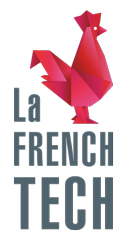For your search engine positioning,
When it comes to your communication, the DN (Domain Name) is one of the most important elements. It’s your company’s and your website’s flagship, and it can also have an impact on your search engine ranking. So how should you choose? Should you focus on keywords? Which extension should you choose?
The importance of a domain name for your business
Choosing a domain name is a crucial stage in creating a website, whether for a business or a personal project. The domain name is the address of your website, the first thing that visitors will see and remember. It is therefore important to think carefully about the choice of domain name and to consider its impact on the image of your company or project.
The domain name must be easy to remember, pronounce and write. It should also be related to the activity of your company or project, to make it easier for Internet users to find. It is also important to choose a domain name extension that is suited to your geographical and linguistic target.
This also has an impact on your website’s natural referencing. A relevant domain name that is optimised for search engines can improve the visibility of your website and therefore increase traffic and conversion opportunities.
It is therefore essential to consider the importance of the domain name in your online communication and marketing strategy.
Take the time to think about the relevance, simplicity and coherence of the domain name for your business or project, and don’t hesitate to seek professional advice to make the best possible choice.
Got an SEO question?
Julia can help
7 years’ expertise in SEO

Which extension to choose?
For a long time, .com was the preferred extension when buying a domain name, but this is no longer the case.
The first reason is that there are now dozens of :
- Geolocalised, like .fr, .it, .bzh or .paris ;
- Linked to an activity such as .org, .store or .site ;
- More exotic, such as .wang or .xyz.
Secondly, because Google attaches importance, albeit modest, but not zero, to the extension. Indeed, it seems logical that a .fr site should be more legitimate in French results than a site with a German extension, for example.
What’s more, from a commercial point of view, if the target is French, it makes sense to give priority to .fr over an .it (Italian) ndd. Otherwise, there’s a good chance that this will have an impact on the conversion rate.
On the other hand, for a multilingual site, the choice of extension is trickier. You can buy more geographical extensions and redirect your visitors according to where they come from, or opt for a .com.
Tips for selecting a domain name
Choosing the right domain name is crucial to the success of your website. Here are a few tips to help you choose a relevant and memorable domain name:

Look at seniority
If you are starting a new business, you can either :
- Order a new domain name. You’re starting from scratch. The SEO work is longer, but totally under control
- Buy one that’s already been around for a while (deleted domain, expired domain, etc.) to take advantage of the SEO benefits that Google has been giving to online sites for several years.
The advantage of a domain name that is already in use is that Google favours seniority in terms of referencing and the trust it places in the name.
The disadvantage is that a domain name of this type is generally more expensive, even much more expensive, than one with no history.
An DN with or without hyphen
The hyphen sometimes appears in certain domain names. From a strictly SEO point of view, the presence of a hyphen in a DLD is not problematic in itself.
On the other hand, from a marketing point of view, it can :
- Be a problem for Internet users, who are increasingly used to domains without hyphens. When these domains have one, it can make them harder to remember. Word of mouth or an audio advertising campaign may then have less impact;
- Help avoid any confusion with a competitor and be more explicit about your business.
In general, it is advisable to reserve both versions, which allows you to redirect your traffic to either of the two domain names.


Reservation time and the registrar
Google tends to give preference in its results to sites that are well established or that have plans to become so. Reserving your domain name in advance for several years is a positive signal sent to the leader in online search.
A registrar is an online company specialising in the sale of domain names. It may be separate from the web host, although most web hosting specialists also offer this service.
While it’s obviously more convenient to have the same contact person, choosing a different registrar or one based outside France has no impact on your SEO company.
Domain name: trademark or keywords?
The image conveyed by your domain name is very important. Depending on the strategic direction you wish to take on the web, you should opt for a brand name or a DN made up of keywords.
Why choose an DN made up of keywords?
For many years, SEOs and web specialists went to great lengths to buy domain names composed of targeted keywords. Better still, the Holy Grail were EMDs (Exact Match Domains), domain names that corresponded exactly to the expression targeted by search engines (e.g. cafetiere-pas-chere.fr).
The aim of this technique was to increase the click-through rate from the search engine results, but also to optimise the positioning of the future site on the targeted queries.
This SEO technique did work for a time. However, the scope of keywords in a domain name is now much less, due to the integration of numerous criteria that have a much greater impact in terms of search engine visibility.
Why choose a brand?
In contrast, brand-oriented domains are built around the trade name or a variant of it. They can be easier to remember and find when typed into Google. What’s more, their identity is stronger and perfect to avoid any confusion with a competitor.
What is the optimum length for an DN?
The maximum length for a domain name is around sixty characters, depending on browser compatibility. However, very few domain names have so many letters.
In fact, excessive length runs counter to the very prerequisites of any good ndd :
- Be easily pronounced by the user;
- Be easily remembered by Internet users;
- Refer to your brand, your name or your business sector;
- Be exportable (pronunciation, evocation, memorisation abroad).
Shorter, it’s easier to type, remember and share. In terms of natural referencing, it is recommended not to go beyond 12 characters.
Professional help in choosing a domain name that is relevant to SEO and the future of your business is both possible and advisable. Get in touch with our seo agency and our consultants will be able to advise you on the best domain names available and how to orientate your project for better SEO.









